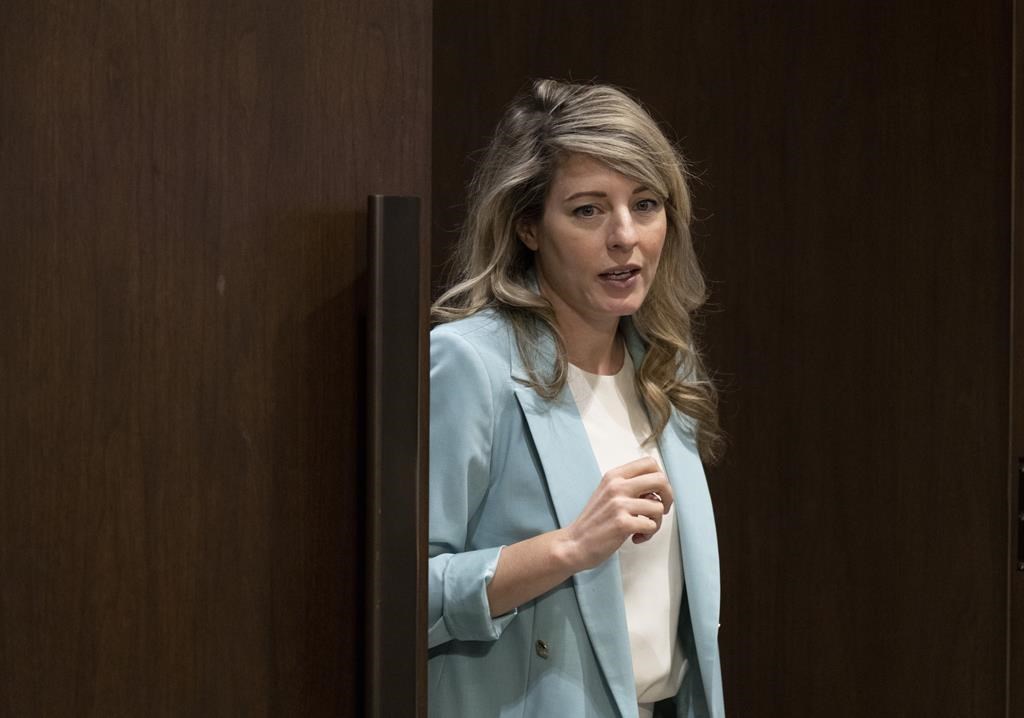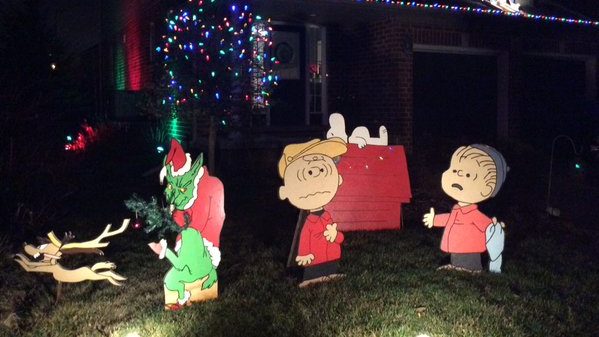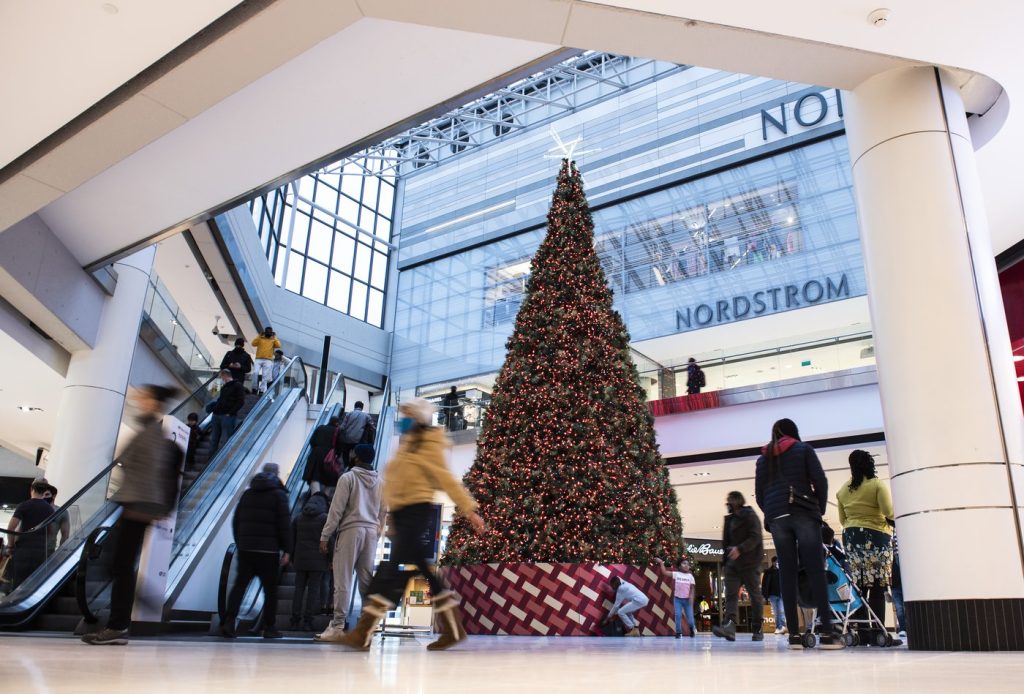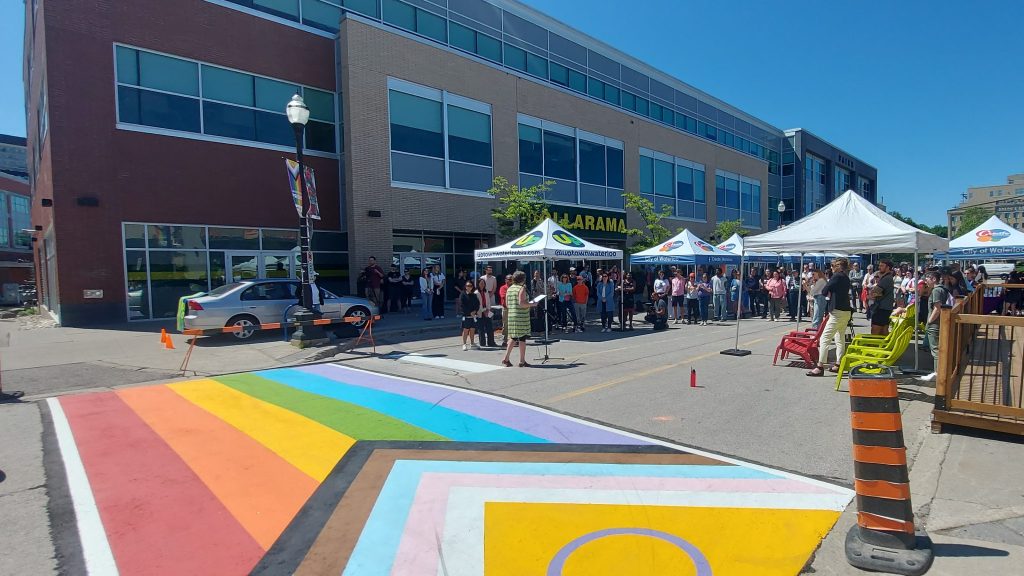Joly concerned for safety of India’s diplomats, calls protest poster ‘unacceptable’

Posted Jul 4, 2023 03:40:23 PM.
OTTAWA — Foreign Affairs Minister Mélanie Joly said Tuesday she is concerned about the safety of India’s diplomats following the distribution of what she called “unacceptable” posters advertising upcoming protests nearToronto and Vancouver.
The posters are the latest in a string of flashpoints in recent weeks that have increased tension between Ottawa and New Delhi over Sikh separatists in Canada.
The upcoming protests areplanned in memory of Sikh leader Hardeep Singh Nijjar, who was killed last month in a shooting outside the Guru Nanak Sikh Gurdwara in Surrey, B.C.
Nijjar, who ran that temple, was a vocal opponent of India and supporter of an independent Sikh state.
A volunteer at that temple, Gurkeerat Singh, has said that Nijjar gave a speech inside earlier the day he was killed and that he had received warnings about his safety from Canadian intelligence officials.
A year ago, the Indian government offered a reward of 1 million rupees, or about $16,000, for information that could lead to Nijjar’s arrest or apprehension.
That led to claims his death was the result of foreign interference. Police say they have found no link to India in their investigation.
The marches planned forSaturday both end at the local Indian consulate, with the B.C. rally starting at Nijjar’s temple and the Toronto demonstration departing from the Great Punjab Business Centre in Mississauga, Ont.
Posters for the events circulating on social media include photos of Indian High Commissioner Sanjay Kumar Verma and the consul general for each city. They refer to all three as “the faces of Niijar’s killers.”
The posters also include the words “kill India.”
In a Monday evening tweet, Joly said Canada takes its international obligations to uphold the safety of foreign diplomats “very seriously.” She said Canada is in touch with Indian officials about the promotional materials “which are unacceptable.”
Defence Minister Anita Anand added that the posters “do not represent Canadians,” in her own Twitter post. “Canada will continue to ensure the safety of foreign diplomats in this country,” she wrote.
New Delhi has long accused Canada of harbouring extremists who want to carve out a state within India they call Khalistan.
Ottawa has said that freedom of speech means groups can voice political opinions if they don’t use violence.
Similar concerns raised ahead of Trudeau’s state visit to India in 2018 contributed to the trip’s difficulties. Trudeau may travel to India again later this year, as the G20 leaders’ summit is scheduled to take place in New Delhi in September.
A month ago, Trudeau’s national security adviser Jody Thomas said India was among the top sources of foreign interference in Canada, a public designation Ottawa has largely limited to authoritarian states.
This week,Indian media reported that the high commission in Ottawa has formally asked the Canadian government to enhance protection for its senior diplomats, such as through escorts.
The Canadian Press has asked the diplomatic mission to confirm these reports.
Earlier this year Verma raised concerns about a rowdy March 23 protest by Sikh groups at the high commission. While Indian media reported the use of grenades, Ottawa Police say they instead are “investigating the possible use of smoke canisters during the protest.” Their investigation is ongoing.
Last month, India’s foreign minister condemned a parade float in Brampton, Ont. that portrayed the 1984 assassination of prime minister Indira Gandhi by her two Sikh bodyguards.
Canada’s high commissioner to India, Cameron MacKay, said at the time he was “appalled” by “the glorification of violence.”
Bhagat Brar, who helped organized that parade, said the float was meant to commemorate martyrs and acknowledge bloody strife in India that had led to Gandhi’s assassination, which included her authorization of a military standoff that killed thousands of people, followed by deadly riots.
“We were not celebrating her assassination,” Brar said in an interview that took place before Nijjar’s death. “Sikhs were celebrating the martyrdom of the two people that assassinated her.”
Brar also alleged that the 1985 Air India bombing, which officials linked to the Sikh militant group Babbar Khalsa, was actually the fault of the Indian government, a claim already investigated and ruled out by the RCMP and the Security Intelligence Review Committee.
“We totally condemn it; we condemn any loss of innocent life, anywhere. I’m sorry, but Indra Gandhi was not innocent.”
This report by The Canadian Press was first published July 4, 2023.
Dylan Robertson, The Canadian Press








